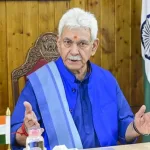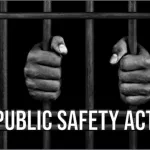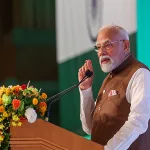“Sir, I am a passionate reader of your books and weekly columns”, a young man — who happens to be a junior engineer by profession— said to me recently. A big shocker for me. “For around 95 % degree holders (including teachers!) , book or column reading is not the first choice”, I voiced back thankfully . “They are a million miles away from this intellectual exercise. But your love affair with reading is an education for me, “I added with my eyes twinkling optimism. End of story.
Unless people read/ write, they are dubbed uncivilized. In actual fact, this columnist has found a ton of ‘educated people’ showing themselves in a poor light through their words and deeds. Barbaric and brutal acts get the better of them in their conduct.
A genuinely educated person would highly value human dignity without fear or favour. He/she would not exploit and blackmail fellow humans or indulge in their discrimination on the grounds of ethnicity, religion, gender, status, caste and power.
The onus of educating people about reading/ writing is shouldered by educational institutions. Since good books are a reservoir of rational ideals, reading them objectively can work as a passport to the shores of peace, progress and prosperity. Because when someone reads a book respecting humanity unconditionally, their train of thoughts undergoes a sea change and transcends borders. Thus, a global citizen mindset is birthed.
Which evaporates the fog of hate and malice, pulls down the caste and colour barriers, buries the cultural and regional superiority feelings and lets noble ideas blossom. The fragrance of such ideas unites hearts, washing away the dirt of nefarious designs.
Reading of good books broadens your mental horizon; also enhances your pool of knowledge. Ancient Greek philosophers held that having knowledge is a virtue, intimating that the lack of knowledge is an evil. We, therefore conclude that reading is a treasure of knowledge. Also of wisdom and enlightenment.
To be a student in any educational institution is a privilege. A student learns from teachers, from the environment and above all from books. For book reading is out of sight among most students, it is safe to assume that the scale and scope of their knowledge and competence shows little promise. Its toxic repercussions on the wider society cannot be discounted.
When a student secures a good grade in an exam, it is seen as a sign of the student’s brilliance and sound knowledge. But that is not the case always although sometimes a high grade student may possess sufficient knowledge. As a teacher with about 16- years experience in school teaching—especially at the secondary and higher secondary level—I have found plenty of students having performed excellently in a particular exam. But they are devoid of the knowledge and grasp of the contents/books which they have carried through the exams effortlessly.
These students are unable to analyze, evaluate or explain the contents which they have committed to memory .It is only the deep study of books that can enable them to figure out things and take on the challenges of life. Several students perceive that studying books is a thankless task and that memorizing mouthwatering notes, on sale as loose sheets, can carry them through in any kind of exam.
This perception over the years has been reinforced because the success rate in exams, particularly in the academic exams at the school or university level from the past many years, has been captivating. Consequently, book reading has lost attraction and appeal; looming large is its elimination.
A student may score a high grade on the strength of an exceptionally good memory. But simply awarding the crammed content harms a bright student. Should students not be evaluated for their critical understanding? Undoubtedly yes. That decidedly can reform the exam system in place as it implies a productive outlook for book reading going forward.
No or low priority on discussing and debating contents bulldozes the prospects of reading. Primary focus is laid on presenting contents. No debates are organized to test and train their understanding, analytical and critical appreciation — key ingredients of sensible reading.
It is essential to prescribe the quantity of curriculum whose timely completion is possible through thorough reading. Syllabus can be shortened to ensure the understanding of contents. Additionally, critical thinking and analysis of contents is a must-have approach.
For example, a student is taught what digestion is. But why is digestion important? Similarly, a tomato is a fruit. How? These questions are hardly asked or discussed yielding little benefit for students in critically analyzing contents. Worse, the study of text books pales into insignificance.
The sheer memorization of contents advances copying and cheating among pupils. If students’ performance is tested in terms of critical analysis of contents, they will become hard workers and creative thinkers .Most importantly, little focus on the teaching of language as a language —not just as a book of stories to be committed to memory—thwarts in-depth book study.
Although students do know a shade of grammar, they lack the ability to critically examine a content given their poor command over language. To most students, writing or speaking anything in their own words remains an area of improvement. They look forward to their teachers to write a topic for them .And if the pupils present the topic, their poor language is reflected in their faulty pronunciation and speaking manner.
If students discard total dependence on rote learning and are not awarded high grades for sticking to it then reading with understanding can be fostered in them. Not memorization, comprehension of contents is a prerequisite for proper reading.
Anyway, my young engineer reader has stolen my heart. He is unlearning to relearn, breaking with tradition.
(Author is RK Columnist and can be reached at: [email protected])








